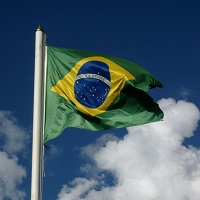The following excerpt is from an article published in CRI Group’s latest Fraud 360 magazine (Issue 1 2015)
By Scott Patterson
Recent fraud scandals within their country appear to have pushed a significant number of Brazilians over the brink. A massive corruption investigation involving government officials and Petrobras, the sixth-largest energy company in the world, lit the spark for what be-came an outpouring of discontent this year that manifested in demonstrations and protests involving millions of Brazilians.
The focus of their ire isn’t Petrobras, entirely. The scandal, and others, allegedly involves prominently placed officials at the highest levels of the Brazilian government. In fact, the appearance of impropriety goes straight to the top: President Dilma Rousseff sat on the board of directors for Petrobras from 2003-2010, a time during which bribes-for-contracts, skimming, illegal gifts, bid-rigging and other alleged corruption was reportedly rampant between company officials and politicians.
While the Petrobras scandal has left Brazilians reeling, it is not the only high profile case to consume the headlines within even just the last few months. In late March, German construction firm Bilfinger announced that it was investigating claims of bribes paid by some of its Brazilian employees to secure business for last year’s World Cup in Brazil. For the Fédération Internationale de Football Association (FIFA), international football’s premier governing body, the news represented just the latest black eye in a long string of them (in regards to alleged corruption). For football-loving Brazil, it likely struck an even deeper chord among the populace: why was FIFA’s corrupt culture finding a natural fit in the business environment of Brazil?
A Reputation for Corruption
To outside observers, it would appear that some degree of national pride, comingling perhaps with a strong sense of justice, is rising to the surface in a country that is too often spotlighted for failures rather than successes in the fight against fraud. In its highly cited Corruption Perceptions Index, European-based corruption monitor Transparency International ranked Brazil 69th (out of 175 countries), with a score of 43 points (with 100 being the highest/best possible).
While Transparency International noted in its report President Rousseff’s strong public stance against fraud, the organization points out that “risks in the sector have lingered. For example, a number of public officials have been charged with demanding bribes, particularly to hurry bureaucratic processes. From 2003 to 2012, the federal auditor’s office fired nearly 4,000 employees from public service. And most of these charges stemmed from corruption or dishonesty.”
The Corruption Perceptions index was released in December, before the latest scandals came to light in Brazil. These new developments, and public reaction to them, are likely to figure heavily in the 2015 rankings.
“Order and Progress”
The Federal Republic of Brazil is the largest country in South America, and the fifth-largest in the world by both population and land mass. It boasts a robust economy with an estimated 2015 Gross Domestic Product of nearly U.S. $3.26 trillion (seventh-largest in the world). For hundreds of years, Brazil was a Portuguese colony, finally achieving independence in 1822. Traditionally, Brazil is known to much of the outside world as a king of coffee exportation, forestry and other agricultural production — but within the last few decades it has been at the forefront of technology, energy and banking, among other fast-changing industries.
Brazil’s national motto, “Ordem e Progresso,” translates to “Order and Progress.” While that sounds, arguably, a bit dry for a country so rich in culture and vibrance, the motto represents the importance that Brazilians place on having a reputation as a for-ward-thinking society with a strong sense of justice. And as the protests of March and April have shown, many living and working in Brazil appear to feel that a sense of order and justice has been betrayed.
Read the full article in Fraud 360 magazine. Just sign in (for free) to subscribe and get immediate access to the online version.
